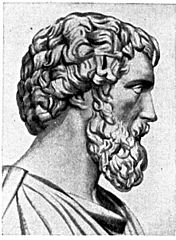In 1937 Wolcott Gibbs drew up a list of 31 rules for new fiction editors at the New Yorker. “The average contributor to this magazine is semi-literate,” he wrote. “That is, he is ornate to no purpose, full of senseless and elegant variations, and can be relied on to use three sentences where a word would do.” Some of his rules:
1. “Writers always use too damn many adverbs. On one page, recently, I found eleven modifying the verb ‘said’: ‘He said morosely, violently, eloquently,’ and so on. Editorial theory should probably be that a writer who can’t make his context indicate the way his character is talking ought to be in another line of work. Anyway, it is impossible for a character to go through all these emotional states one after the other. Lon Chaney might be able to do it, but he is dead.”
2. “Word ‘said’ is O.K. Efforts to avoid repetition by inserting ‘grunted,’ ‘snorted,’ etc., are waste motion, and offend the pure in heart.”
3. “Our writers are full of clichés, just as old barns are full of bats. There is obviously no rule about this, except that anything that you suspect of being a cliché undoubtedly is one, and had better be removed.”
12. “[Style editor Hobie] Weekes said the other night, in a moment of desperation, that he didn’t believe he could stand any more triple adjectives. ‘A tall, florid and overbearing man called Jaeckel.’ Sometimes they’re necessary, but when every noun has three adjectives connected with it, Mr. Weekes suffers and quite rightly.”
20. “The more ‘as a matter of facts,’ ‘howevers,’ ‘for instances,’ etc., you can cut out, the nearer you are to the Kingdom of Heaven.”
“I would be delighted to go over the list of writers, explaining the peculiarities of each as they have appeared to me in more than ten years of exasperation on both sides,” he wrote. “By going over the list, I can give a general idea of how much nonsense each artist will stand for.”

